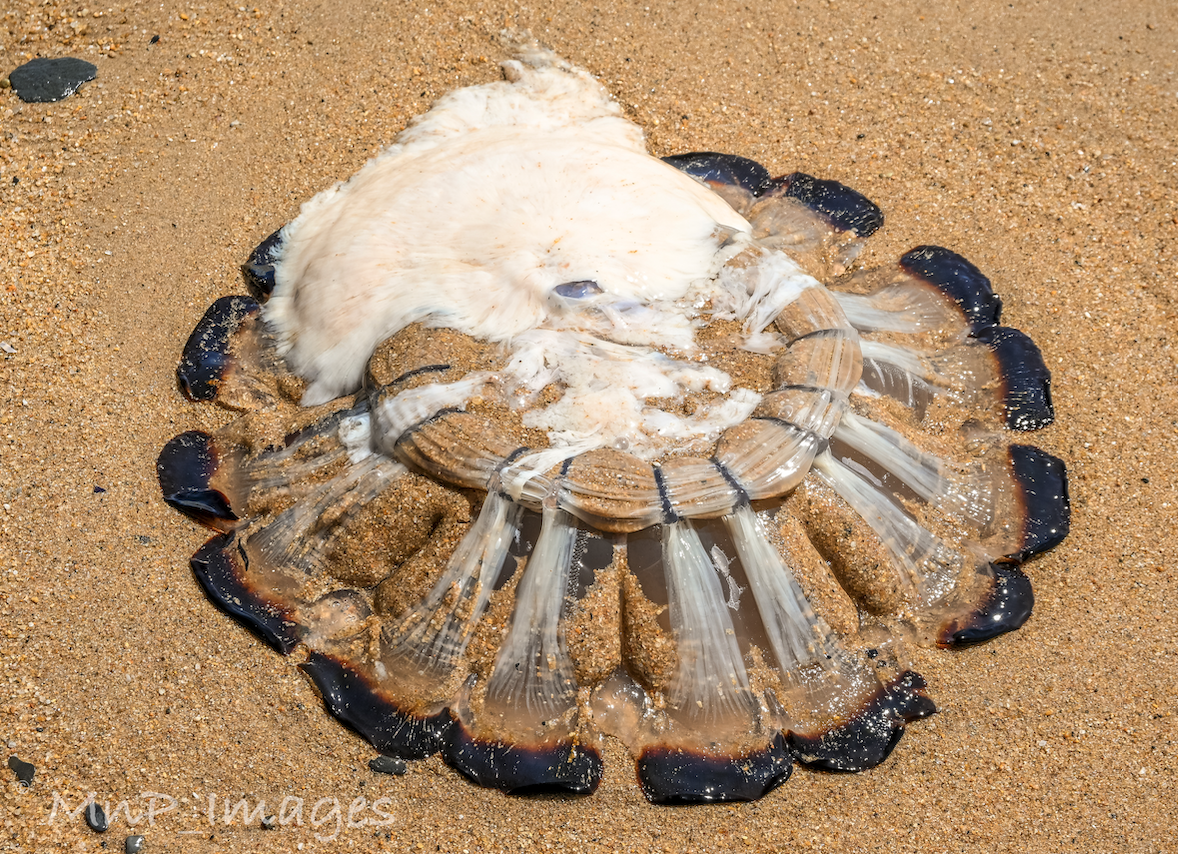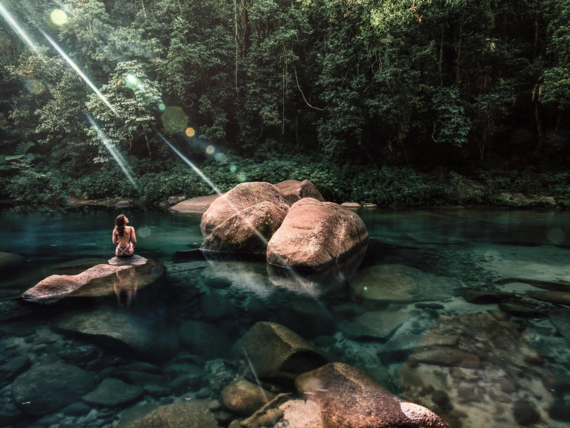
##MP##
Five beaches have been closed north of Cairns, due to an infestation of a marine stinger whose tentacles detach and can drift through stinger nets.
The Cyanea, which also goes by the names of hair jellyfish, snottie, and lion’s mane jellyfish, has been particularly prevalent in Palm Cove.
Lifesaving North Queensland has closed Ellis Beach to Trinity Beach, including Palm Cove, Kewarra and Clifton Beaches.
The jellyfish is not as dangerous as box jellyfish, irukandji or even blue bottles, but they do give a moderate sting.
##BA##
“They’ve got long little fine tentacles on them and they get caught in the side of the stinger nets and break off and come through the nets and sting people,” NQ Regional Lifeguard Supervisor Jay March told Southern Cross Austereo.
“It’s got to a critical mass at the moment so if you go down to Palm Cove, you’ll see hundreds of them washed up on the beach.”
Emma Jean Pilgrim's son has been among the victims.
He was swimming inside the nets at Palm Cove when a tentacle wrapped around his torso.

“The stinging lasted for 20-30 minutes, so not real bad,” she said.
Brad Madgwick from Palm Cove Watersports has also been spotting them during his bush food and medicine kayaking tours around Double Island.
“They’re not considered a dangerous jellyfish – if stung enough, though, there’s the potential of someone going into anaphylactic shock,” he told Tropic Now.
“The tentacles break off on the stinger net then drift through the swim area and people get stung same as they would if they were still attached to the jellyfish.
“I have been seeing a few box jellyfish near the Palm Cove Jetty at the moment also.”
The Cyanea species is common off the coast of north Queensland, but they aren’t often seen and can fluctuate in numbers.
Any blooms emerge over the summer months.
Main points
- Ellis Beach to Trinity Beach have been closed due to infestation of Cynea jellyfish
- They're also known as lion's mane and hair jellies, or snotties
- Tentacles detach from the bell and can enter stinger nets, but the stings aren't particularly dangerous








